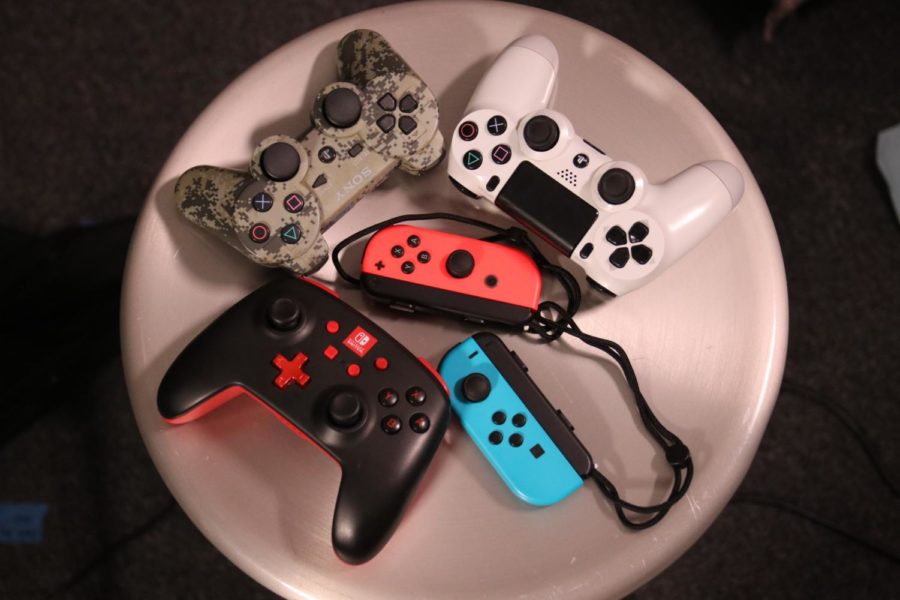Opinion: You are never too old for video games
Controllers from various consoles are laid out. My household has had a total of 10 consoles and gaming devices throughout the years.
Video games have been a part of my life for as long as I can remember.
A couple years after I was born, my parents purchased a Wii console for our apartment. I remember playing games such as “Wii Sports” and “Ghost Squad.” Although I wasn’t great at them, these games entertained me. My family owned a family computer and a PlayStation Vita with “God of War 3.” Then, we acquired a PlayStation and 4 with various first-person shooter games and now, a Nintendo Switch, personal computer and Meta Quest VR headset.
With each gaming electronic and console, I’ve grown not just as a gamer, but also a person, connecting with online players, friends and family members when playing alongside them. The hours and days I’ve spent gaming and laughing are irreplaceable in my mind and heart, only getting built upon by more fun memories to this day.
I’m grateful to have been influenced by the culture of video games. I don’t plan on leaving the gaming community any time soon. However, in recent years, I’ve often contemplated how, one day, I won’t be able to keep up with the newer generation of games, and will be subjected to sitting on a couch, watching television in my future 40-year-old dad body. I am hardly alone as this idea is common among my peers as we reach adulthood.
When it comes to becoming an adult, people believe this chapter of life is when you put aside the video games, cartoons and comics so that you can pick up the more responsible tasks: being a parent, building a career and marriage. Out with the silly and childish hobbies and in with serious adult reality. But it doesn’t have to be that way — you can still do something you love while also taking on a harsher responsibility that calls for more maturity and more of your attention.
When it feels as if you’ve outgrown games or that games have evolved into something too fast and complex, return back to the video games that are familiar to you for a sense of nostalgia. My dad, for example, despite having difficulties keeping up with the players and mechanics in today’s games, dominated once he picked up the controller again to play “Contra” and “Dr. Mario” on the Nintendo Entertainment System and “State of War” on the computer. It is embarrassing as I stand no match against his performance and strategy in games that are decades old. Seeing him play is like watching a master of martial arts perform again after so long, with the same discipline and swiftness as they had before, and to an extent, this brings me closer to him, as gaming becomes one more thing we have in common.
Video games are, at their core, unchanging. They contrast the fast-paced motion of life as something you can always return to. Aging doesn’t mean anything as long as playing them makes you feel like your younger self again.

Senior Henry Pham is the visuals editor and this is his second year on staff. He spends a lot of time gaming, munching on food, listening to jazz music...




Brody • Feb 24, 2023 at 2:27 PM
FIREEE ??